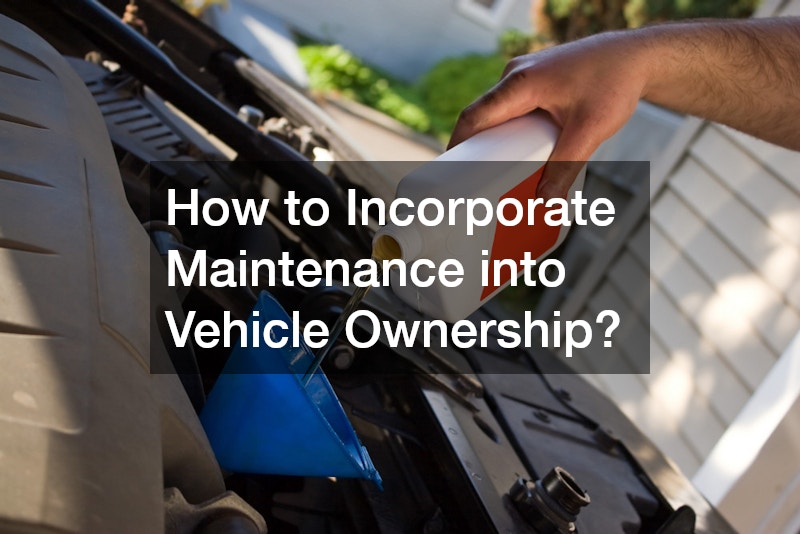Professional vehicle maintenance is a critical aspect of vehicle ownership, playing a significant role in ensuring longevity, safety, and optimal performance. Regular maintenance is not just a requirement but an investment in the health and efficiency of your vehicle.
Why is Regular Vehicle Maintenance Essential?
Benefits of Scheduled Maintenance
Following a consistent maintenance schedule helps in improving vehicle safety by ensuring all components are functioning correctly. Regular maintenance checks can lead to considerable cost savings by preventing major breakdowns and expensive repairs.
Scheduled maintenance aids in optimizing the vehicle’s performance, leading to better fuel efficiency and smoother operation. Over time, these check-ups help keep the vehicle in top condition, extending its operational lifespan.
Regularly servicing your vehicle helps in identifying minor issues before they evolve into significant problems, minimizing the risk of unexpected failures. Consistent maintenance enhances the dependability of the vehicle, providing peace of mind for the owner.
Risks of Skipping Maintenance
Neglecting regular maintenance can significantly reduce the vehicle’s lifespan as small issues may go unnoticed until they cause severe damage. This lack of attention can turn minor, inexpensive fixes into costly repairs, such as engine or transmission overhauls.
Skipping maintenance poses safety risks, as critical systems like brakes, tires, and lights may deteriorate without routine checks. This neglect increases the likelihood of accidents due to unforeseen system failures while driving.
Additionally, avoiding maintenance can negatively impact vehicle performance, leading to reduced fuel efficiency and unreliable operation. The more these issues accumulate, the more costly and time-consuming they become to rectify later on.
How Does Professional Vehicle Maintenance Enhance Safety?
Key Safety Checks
Essential safety inspections during maintenance, such as brake checks and tire rotations, are crucial for preventing accidents. These checks ensure that all critical vehicle systems are operating optimally, reducing the risk of malfunction.
Regular inspections allow for early detection of safety issues, providing an opportunity to fix potential problems before they pose a danger. By ensuring that the vehicle’s lights and indicators are functioning, maintenance supports clear road communication and visibility.
Detailed safety checks, including assessment of belts and hoses, help maintain the vehicle’s reliability. Ensuring these components are in good condition plays a role in mitigating breakdowns that could endanger the driver and passengers.
The Role of Technicians in Safety
Professional technicians bring expertise to vehicle maintenance, identifying safety hazards that owners might overlook. Their training enables them to spot potential problems, enhancing overall vehicle safety.
Technicians perform thorough examinations, ensuring all vehicle systems are assessed for wear and tear, boosting roadworthiness. Their specialized knowledge ensures issues are precisely addressed, minimizing safety risks.
By leveraging advanced diagnostic tools, technicians can efficiently detect underlying issues that might compromise safety. Their role is pivotal in maintaining the vehicle’s safety standards and operating efficiency.
What are the Financial Implications of Vehicle Maintenance?
Short-term Costs vs. Long-term Savings
The upfront costs of regular vehicle maintenance might appear high, but they are significantly lower than potential repair costs from neglect. Routine maintenance helps to avoid costly repairs by addressing issues early when they are less expensive to fix.
Investing in regular maintenance can result in considerable long-term savings by preventing catastrophic failures that could amount to thousands of dollars. Such preventive measures ensure that the vehicle remains cost-effective over its lifespan.
By keeping the vehicle in good condition through regular maintenance, owners benefit from improved fuel efficiency, which translates to savings at the pump. This efficiency results in less wear on the engine and other systems, decreasing overall operational costs.
Insurance and Resale Value
Regular maintenance documentation can influence insurance premiums as insurers may offer discounts to well-maintained vehicles. This documentation serves as proof of the vehicle’s reliable condition and reduced risk profile.
A well-maintained vehicle generally holds a higher resale value due to its attractive operational state and lower likelihood of hidden defects. Detailed records of maintenance services reassure potential buyers of the vehicle’s quality, boosting market value.
Maintaining the vehicle’s standard condition also ensures compliance with safety regulations, which can positively impact insurance assessments. Consequently, consistent maintenance protects not only the vehicle’s safety but also its financial appreciation.
How to Choose a Professional Vehicle Maintenance Service?
Factors to Consider
When selecting a maintenance service, consider factors such as certification, which ensures technicians possess the necessary skills and training. Certifications like ASE indicate a recognition of quality standards and professional competence.
Customer reviews and recommendations provide valuable insights into the reliability and quality of the service provider. A well-reviewed maintenance shop is likely to deliver satisfactory service and meet customer expectations consistently.
Questions to Ask Your Technician
Ask your technician about their experience with your specific vehicle make and model to ensure familiarity with its requirements. This expertise can lead to more accurate diagnostics and tailored maintenance solutions.
Inquire about the typical turnaround time for scheduled maintenance and repairs, providing you with clear expectations. Understanding these timelines helps in planning your vehicle’s availability around work or personal schedules.
How to Incorporate Maintenance into Vehicle Ownership?
Creating a Maintenance Schedule
Developing a personalized maintenance schedule that aligns with your vehicle’s specific needs ensures timely attention to crucial systems. This schedule should include routine checks recommended by the car manufacturer and tailored adjustments based on usage patterns.
Utilizing digital reminders or apps can help you keep track of upcoming maintenance tasks and appointments. Regular reminders ensure no service intervals are overlooked, maintaining consistency in vehicle care.
Documentation and Record-Keeping
Maintaining comprehensive records of all maintenance activities creates a detailed history of the vehicle’s condition over time. Even for future transactions, documented maintenance enhances credibility during resale negotiations.
This documentation supports insurance claims by providing proof of well-maintained vehicle conditions. It also aids technicians during future service visits, supplying them with valuable background information on the vehicle’s service history.
.


